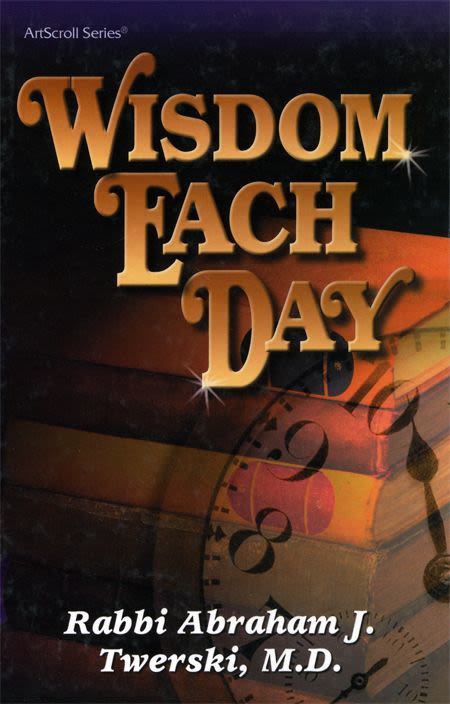
The Magic Circle
The need for an idealized image of themselves as holy figures who deny pleasure to themselves and their wives is killing anything that is alive in some men...

A religious man is scrupulous in his observance of Halacha (Jewish law). He is not only dutiful to fulfill every law in the most meticulous way that he can, but he willingly takes upon himself additional stringencies that he is not officially obligated to carry out. His extensive and meticulous study of the code of Jewish law, along with his painstaking efforts to live strictly by Torah law has earned him the admiration and respect of many people in his community. What they see is a man who takes upon himself extra fast days, who spends lengthy periods of time in the mikvah (the ritual bath), who restricts and narrows his physical desires and comforts to the bare minimum, who restricts his involvement and conversation with others for the sake of his dedication to Torah learning. In short what almost everybody sees is a man of impeccable integrity, a veritable “walking Torah” whose entire lifestyle epitomizes the Jewish values of modestly, frugality, non-materialism, and being happy with one’s lot.
Since the values and ideals of the Torah come from G-d Himself, we certainly cannot exempt ourselves from our obligation to learn about and inculcate these precious values in ourselves. Traits such as modesty, humility, remaining inconspicuous and a willingness to take second place are very fine qualities. The urge to save rather than spend, not making demands on others, not asserting one’s needs and not asking for favors, being content with little, and restricting ones ambition for material things are certainly fine and praiseworthy attributes. All of these attributes are the correct ones that we should all be working towards at our own pace. But a very serious problem arises when people are driven to personify these  lofty qualities all at once. When people feel compelled to act like strictly observant Jews out of a dire pressing urgency and compulsive need to do so we can’t even say that it is they who are pursuing anything – in reality it is they who are being pursued.
lofty qualities all at once. When people feel compelled to act like strictly observant Jews out of a dire pressing urgency and compulsive need to do so we can’t even say that it is they who are pursuing anything – in reality it is they who are being pursued.
I speak with men like the one above who take on extra fasts, spend lengthy periods of time in the ritual bath and restrict their physical desires for their wives, not because their aim is to reach higher levels of spirituality and religious observance but because they are being driven to do so by very unhealthy forces within them. They are being pursued by an idealized fantasy of how they MUST think about themselves and MUST have others think about them.
The need for an unrealistic idealized image of themselves as holy, acetic figures who deny pleasure to themselves and their wives is killing off anything that is actually real and alive in them. The restrictions that they place on themselves may serve the neurotic purpose of allowing them to feel superior to other people or to punish themselves too harshly for their improper desires. They may keep conversation to a minimum in the study hall, not so much because they have internalized this as a value, but because a detached aloofness is an expedient “religious” behavior that keeps them distant from their fears of others. This “neurotic solution” not only gives them the safe distance they need from feeling inferior to others, but they also think it makes them look like very religious men in their own eyes and the eyes of others. What is so poignant about the neurotic’s search for glory is that in whatever form it takes, the neurotic search for glory becomes the only goal that they have. People simply cannot grow in any real way emotionally or spiritually when all their energy is bound up in maintaining the façade.
The neurotic avoidance of his wife, in the name of being an “exalted sage,” is one of the more obvious problems a person like this has because of how it ruins his marital relationship. When a man and woman restrict their time together because they are both on a lofty spiritual level, it will add to their love for each other and their love for Hashem. But when he unilaterally decides to be a “holy roller” at his wife’s expense, it’s clear that it is not coming from a holy source but rather from a neurotic source – such as unconscious hostility towards his wife or needing to ward off his unconscious wish to become parasitically dependent on his wife.
The person with a neurotic need to detach from people draws around him a magic circle that no one may penetrate. He may superficially “get along” with people but the compulsive character of his need to move away from people shows up in his reaction of anxiety when the world intrudes on him. His primary need is not to follow Jewish law or serve G-d; his primary need is to feel self-sufficient and to not get involved with others. Restricting his needs, fasting, and keeping his head in the books are primarily ways of not getting involved with others. A person like this will hide in the study hall “learning” for hours in order to ward off his panic about attending a social function amongst gregarious people – his worst nightmare. If you ask him a question about his personal life it may shock him; he hides behind a veil of secrecy. He may even feel resentment towards G-d since he knows that G-d can look and see into his most private thoughts and behaviors.
It is of great practical importance that we learn to differentiate between genuine intrinsic spirituality and the neurotic versions of spirituality and religious observance that have reached epidemic proportions in our day. How are we to help our children find healthy soul mates? How are we to be sure that our teachers and principals are what they seem to be? How can we be sure about our Rabbis and the wise men whose sage advice we have come to trust? G-d wants us to believe in ourselves as well as in Him. We must have the eyes to discern the truth about others and about ourselves not only in order to avoid the many unpleasant outcomes that can result from hiding behind illusions, but also because the more we avoid the truth, the weaker and less viable becomes our bond with the Creator who is the source of Truth. Our purpose can never be to judge but to understand others and ourselves.












Tell us what you think!
Thank you for your comment!
It will be published after approval by the Editor.